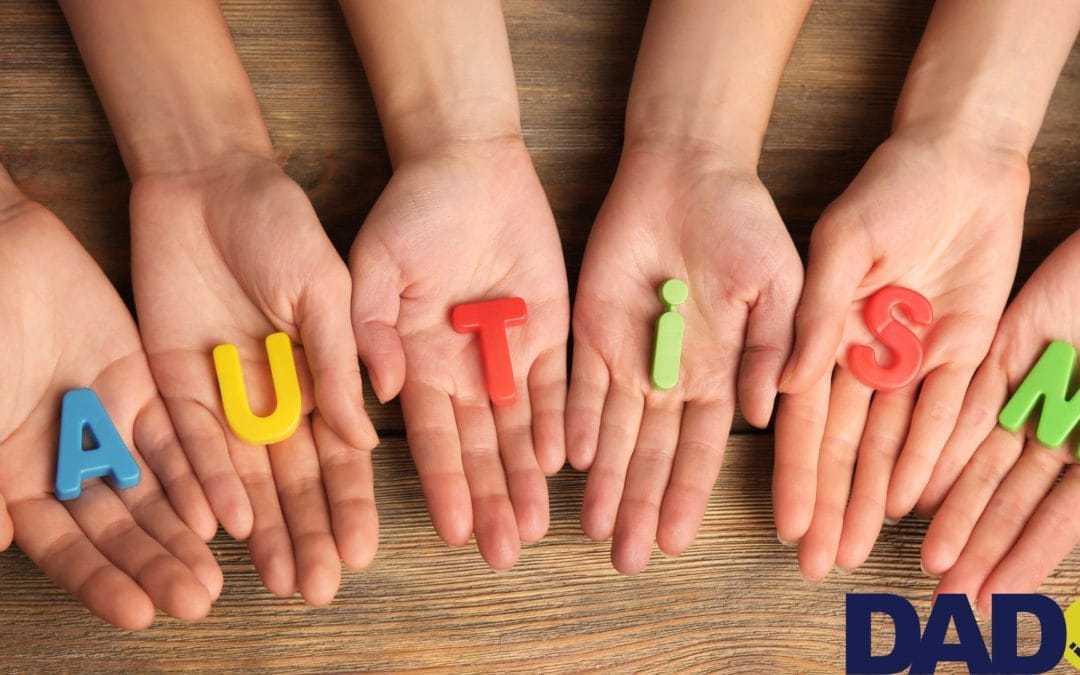On social media this week, a photo of a dad wearing a T-shirt saying ‘Dads don’t babysit. It’s called “parenting”’ went viral, and this isn’t the first time we’ve seen this kind of message so widely shared. But, says Steph Beaumont – author of His and Hers Guide to Pregnancy and Birth and founder of The Natal Family – the rather controversial question has to be, is this always true?
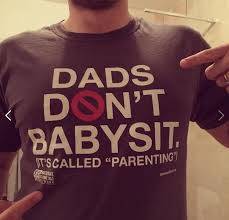
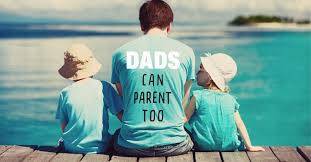
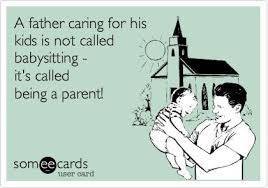
I wholeheartedly and unreservedly support the basic message which I know it’s trying to convey –– that dads are incredibly important in the family and that their role should not be minimised. A dad is as capable of giving his children nurture, care and development, as a mum. A mum looking after her own children wouldn’t be referred to as ‘babysitting,’ so it is most definitely not ok to patronise fathers and minimise their contribution or place within their family, by calling them a ‘babysitter.’
Absolutely. Dads do matter.
However, I’ve read a lot of comments on social media, which also say that any man who ever refers to himself as ‘babysitting’ should ‘man up’ or ‘be ashamed’, and this actually makes me quite sad.
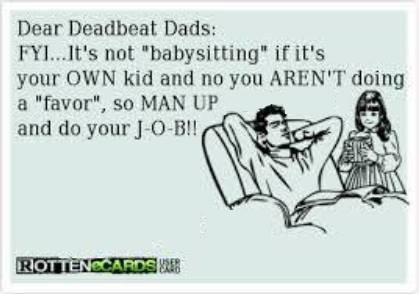
Rather than getting angry at the use of the word, or telling someone that it is NOT what they are doing, is it not more appropriate to have a discussion on WHY that word is being used by anyone in the first place? On WHY a father might feel more like they are ‘babysitting’ rather than parenting? On WHY fatherhood is not held in the same importance (or let’s be honest, even close) to motherhood.
This ‘babysitter’ identity, is evidence of an issue with the status of the father in society, an inherent disempowerment of one half of a parenting team, something which begins long before a baby is even born.
Consider for a moment, those first months after conception when expectant mothers and fathers start to explore, learn and adapt to their new roles – and the messages they get as they do so….
It begins with the antenatal appointments. Relatively recent legislation in the UK does now mean men are entitled to unpaid leave to attend two antenatal appointments with their partner, but on average a woman will attend around 10-12 appointments in a first pregnancy. Possibly more than this if there are complications. So what is the message here about the importance at this point, of the role of the father – to the fathers themselves, their partners and society around them?
Many antenatal classes still focus almost exclusively on the woman in labour and birth, in both their promotion and the information relayed in class. Dads are often left feeling unclear and unprepared on what they specifically can do to support their partner. Many breastfeeding workshops are still ‘women only’, despite the evidence which shows what a crucial difference fathers’ can make to the initiation and continuance of breastfeeding. So what is the impact of these approaches on the understanding of the role and impact of fathers, birth partners and fatherhood at these critical times, to the fathers themselves, their partners and society around them?
Many hospitals have specifically named ‘Women and Children’ units or ‘Maternity Units’ which is where care relating to pregnancy and birth, such as antenatal scans, takes place. In their very name, the father has no role or place here. What message is this giving about fathers, fatherhood and paternity, to the fathers themselves, their partners and society around them?
During childbirth, without having had the proper support to understand how to fulfil their role as a birth partner, men can feel ‘useless’ and out of their depth, unable to support their partner despite wanting to. Many report feeling completely uninvolved in decisions being made about their baby, between their partner and their midwife/doctor. Women often relay birth stories where dad was ‘not allowed’ to be with them overnight, during the early stages of an induced labour. Men can be left feeling guilt and responsible for not being able to do more for their partner or baby, despite having never been empowered to do so. Michel Odent, a pioneer in normal birth, has even stated that men have no place in the birth room, as they can cause more difficult labours. If we continue to inadequately prepare fathers for such a momentous life event, minimising them as merely observers or even a hindrance whom would be better absent; how does this impact on the view of the father, to the fathers themselves, their partners and society around them?
Most hospitals (although some are slowly making better provisions) do not have the facilities/allowance for a father to stay overnight with his partner and new baby. Fathers are still routinely being separated from their new family and being ‘sent home’ at a universally recognised crucial time for bonding. What message does this send, about the importance of the father as a parent, to the fathers themselves, their partners and society around them?
How often do fathers get an opportunity to discuss how they are feeling about what they have experienced or the changes they are going through? We know that fathers can also experience birth trauma and postnatal depression, which can impact on their relationship with both their partner AND their child/children. By not enabling their experience to be heard, are we sending the message that it is significant or not? What does this suggest about their importance to the fathers themselves, their partners and the society them?
In all of these, and many other ways, dads simply ARE NOT treated as though they are 50% of a parenting team, with a really important role.
Yet despite ALL of this, there is still an expectation that men will step into fatherhood, and find their feet as a parent. Would it really be a surprise if men, having experienced all these instances of NOT being seen an important part of a parenting team, also didn’t view themselves as so? Is it any wonder that society or their partners may also not?
It seems like the ultimate disempowerment to me – throughout the months of pregnancy and early days with a new arrival, keeping dads at an arms-length, side-lines involvement and minimising their role, but then suddenly expecting them to overnight transform into a confident parent, and even seeing criticisms of dads when they get it ‘wrong’. We have all seen the ‘dad-shaming’ posts which ‘humorously’ poke fun at the dads who put the nappy on wrongly, or are sat cuddling their baby while on the Xbox, and so forth.
Is it any wonder that some men do go on to feel like ‘babysitters,’ rather than perceiving themselves to be an important (never mind equal) parent? Dads don’t need to ‘man up’, they need to be better included and viewed as half the parenting team from the start. Of course, while pregnancy and birth remains viewed by a medical model, this is less likely to happen. This is for another discussion, but I am certain that the more we normalise birth, the more fathers will be empowered; and the more we empower fathers, the more we will normalise birth.
Working in the antenatal and postnatal field for several years, I’ve met many men who do refer to themselves as ‘babysitting’ when their partner is not home. They don’t feel confident looking after their children on their own, especially while they are young, and avoid it as much as they can, or seek the help of other family members wherever possible. When they do have to do it solo, they find it even more challenging, as the negative cycle of self-doubt and a lack of practice compound the experience. I’ve met many men who have experienced some kind of birth trauma, which has impacted on their ability to bond with their children, creating distance in their relationship with them – leading them to take on the ‘babysitting’ self-identity. Fathers like this don’t need to be told to ‘man up’. We are letting fathers like this down. We are letting their families down.
For some fathers, they are able to throw themselves into parenting with their newborn, and forge a sense of confidence and significance in the family. This is fantastic, and without doubt a great way to overcome any potential marginalisation or feelings of nerves. Getting hands-on builds the relationship and bond with a child, and reinforces how much they can do, and do matter. Opting out, will always make any feelings of disassociation or self-doubt worse.
But, for various reasons – family dynamics, relationship dynamics, or personality traits for instance, not all men find it this easy to just ‘get involved,’ especially after months of being subtly passed the message that they are relatively unimportant and unequipped.
For those fathers who do find themselves feeling this way, how about we stop judging them as ‘inadequate’ and instead start looking at why this is happening and what we can do about it?
Sadly, I don’t think it is just as simple as campaigning to stop using the term ‘babysitting.’ Or suggesting that all time a parent spends with their child is ‘parenting’. For sure, there will be numerous instances where a father (or someone commenting on a father) is not seeing how what they are doing is ‘parenting’ and how it has enormous value. However, there will also be those who do not feel as though they are ‘parenting’, those who feel disengaged or distant. There will be those who want to be able to do more than they are but they don’t know how. And it is important to listen, and not tell fathers that how they see their situation or role is incorrect – after all, it is them living it.
While use of language is undoubtedly important, to me this is trying to plaster over an issue rather than go down to its foundations. Making a term like this become truly redundant means looking at what has caused it to be used in the first place. How can we include fathers as a parent from the start? Give their experiences and journeys value? Celebrate everything they can bring to the family? Offer them specific support for their role of father and birth partner, acknowledging how important and valuable they are?
So, if a dad tells you he is babysitting – don’t judge him.
It doesn’t mean he doesn’t love his kids. It doesn’t mean that he just thinks he is doing his partner a ‘favour’. It doesn’t mean that he thinks it’s beneath him to involved in childcare. It doesn’t even mean that he isn’t involved or doing some amazing stuff to nurture his children.
It will mean though that society and some of the antenatal processes which support expectant parents still do not realise the value of fatherhood.
And maybe it is these which need to ‘man up’?
Steph Beaumont is author of “His and Hers Guide to Pregnancy and Birth” and founder of The Natal Family.
Updated: Oct 2017





